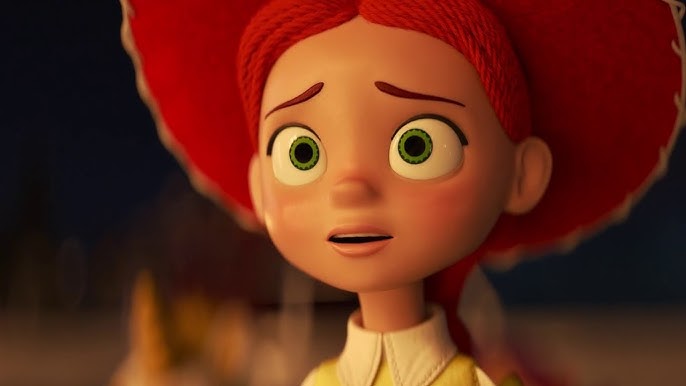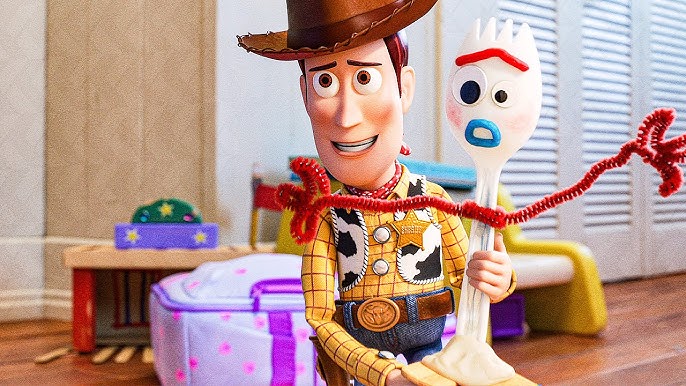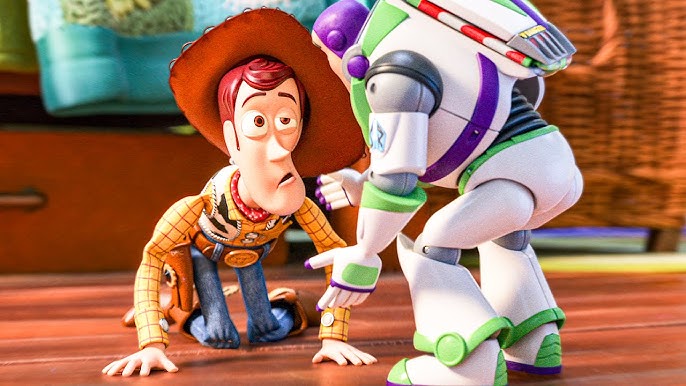Toy Story 4 (2019)

Toy Story 4 (2019) – A Heartfelt Farewell to a Beloved Saga
Pixar’s Toy Story franchise has always been about growth, change, and the bittersweet emotions that come with them. With Toy Story 4 (2019), directed by Josh Cooley, the beloved series embarks on another deeply emotional journey that not only revisits cherished characters but also introduces new ones that leave a lasting impact. While many believed Toy Story 3 was the perfect conclusion, Toy Story 4 justifies its existence by delivering a poignant story that explores themes of purpose, identity, and letting go.
A New Adventure Begins
The film picks up after the events of Toy Story 3, where Woody (Tom Hanks), Buzz Lightyear (Tim Allen), and the rest of Andy’s former toys have found a new home with Bonnie. However, Woody struggles with his diminishing role in Bonnie’s life. His sense of purpose is thrown into question when Bonnie creates Forky (Tony Hale), a makeshift toy made from a spork, who grapples with his own existential crisis—believing he is trash rather than a toy. Determined to keep Forky safe, Woody embarks on a road trip that leads him to reunite with Bo Peep (Annie Potts), who has transformed into a self-sufficient and independent adventurer.
New Characters Bring Fresh Energy
One of the strengths of Toy Story 4 is its introduction of compelling new characters. Forky serves as the catalyst for Woody’s journey of self-discovery, while Duke Caboom (Keanu Reeves), a Canadian stuntman toy, provides hilarious and action-packed moments. The film’s antagonist, Gabby Gabby (Christina Hendricks), a vintage doll with a broken voice box, adds unexpected emotional depth. Unlike traditional villains, Gabby’s motivations stem from longing and rejection, making her arc one of the most touching in the film.
Ducky and Bunny, voiced by comedy duo Keegan-Michael Key and Jordan Peele, bring a delightful comedic presence, lightening up the film’s heavier emotional beats. Meanwhile, Bo Peep’s transformation from a delicate ceramic figurine to a fearless leader emphasizes the film’s core themes of independence and self-fulfillment.
A Deeper Look at Woody’s Journey
Unlike previous installments where Woody’s purpose was tied to being a child’s toy, Toy Story 4 challenges him to think beyond that. His reunion with Bo Peep forces him to reconsider his place in the world, leading to an emotional climax that is both heartbreaking and satisfying. The decision Woody ultimately makes solidifies Toy Story 4 as more than just a continuation—it is a profound conclusion to his personal journey.
Stunning Animation and Nostalgic Score
Pixar once again proves its mastery in animation, bringing toys to life with stunning detail and realism. The textures, lighting, and environments are breathtaking, from the carnival setting to the antique store filled with eerie yet beautifully crafted details.
Randy Newman’s iconic score returns, evoking nostalgia with familiar themes while introducing new compositions that perfectly capture the film’s emotional beats. Songs like You’ve Got a Friend in Me still resonate, reminding audiences of the franchise’s deep emotional roots.
A Fitting Conclusion to an Iconic Franchise
While some may argue that Toy Story 4 was unnecessary after the perfect send-off in Toy Story 3, the film earns its place by telling a deeply personal and heartfelt story about Woody’s evolution. It is a film about moving on, embracing change, and finding a new purpose, resonating with both younger audiences and longtime fans who grew up with these characters.
By the end of Toy Story 4, it is clear that this isn’t just another adventure—it’s a farewell to the character who started it all. It may leave you teary-eyed, but it does so in the best possible way, reminding us that even the most beloved stories must eventually find their conclusion.










